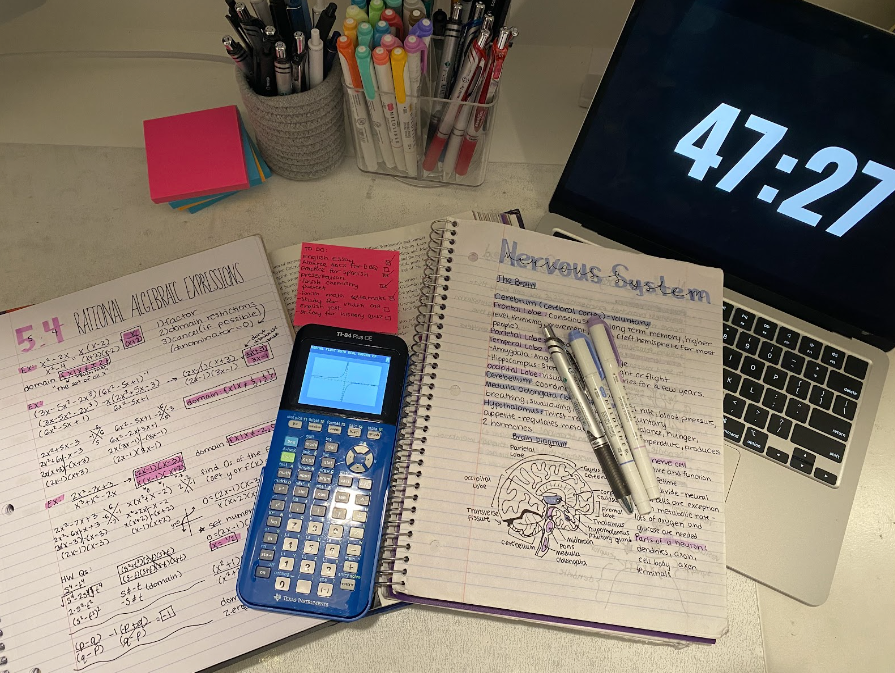Seven days in the week, six practices, five school days, four important assignments, three quizzes, two presentations, and one student trying their best to manage all of their responsibilities. The struggle of balancing sports with school work affects an enormous group of students at Hingham High School. The sleep deprivation, early mornings, late nights studying, commitment required for club and high school teams, and the unyielding abundance of school work can be mentally and physically draining. It can feel as though time moves rapidly that no time can possibly be devoted to maintaining a healthy social life. However, creating balance and developing healthy habits to sustain the strenuous schedule followed by many student-athletes is unbelievably beneficial.
Being a student-athlete often leaves no time for procrastination, as there is not enough time in the day to remain unfocused and unproductive between training and school. Time management is crucial in the daily life of a student-athlete, especially in regard to homework. Sophomore and hockey player at Hingham High, Katie Teague, described, “Having a study really helps me manage my homework, and when I have a lot of work after school, I start it as soon as I get home from practice. I take a lot of notes in class, and when I study at home, I just try to do it as fast as I can without distractions.” Similarly, senior and swimmer at Hingham High, Kelsey Donegan, explained, “it’s difficult to balance the school work and practice, but I feel that finding time to decompress right after school always helps me focus on homework before practice.” Clearly, eliminating distractions when trying to maximize time for studying and homework, and creating study habits that serve an individual best allow for effective balance in the lives of student athletes.
Another substantial component of the life of a student athlete is a healthy sleep schedule. Without healthy sleep habits, many students tend to perform poorly in both their academic and athletic commitments. A lack of sleep, in addition to pressure to succeed in both sports and school during the teenage years, causes numerous students to face mental challenges. As a solution, prioritizing sleep can not only elicit an improvement in athletic and academic performance, but also positively affect one’s mental health.
The rigorous schedules of student athletes force them to make sacrifices, but also teach self discipline and hard work. The act of attempting to create balance in life ultimately introduces students to the incessant chaos of the real world and the lessons learned, unable to be taught in a classroom, are worth the long nights studying and the seemingly never ending practices.

































